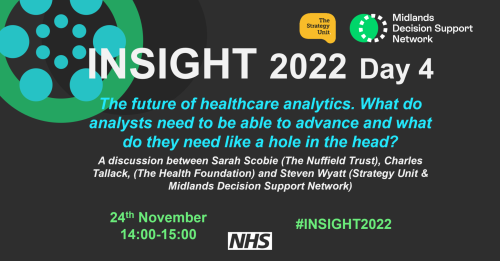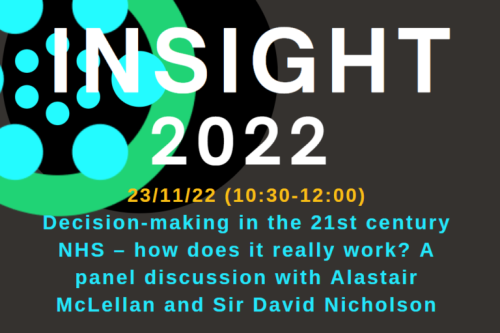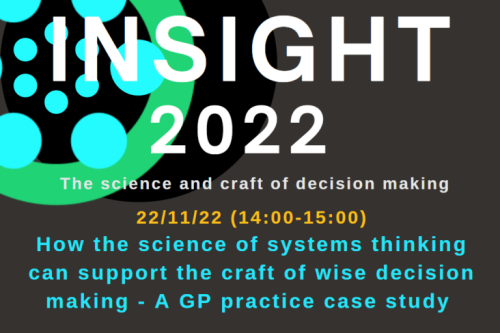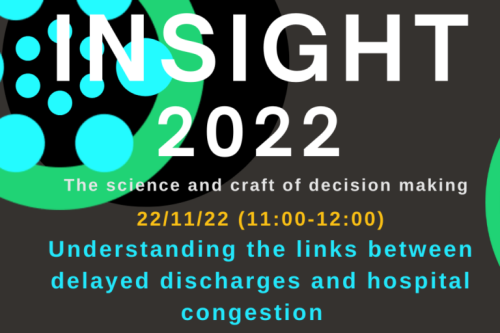
Diagnosing harms?
All medicines are poisons. Everything that cures could kill if administered in the wrong doses, to the wrong people, at the wrong times, in the wrong ways.

Inclusive Elective Care Recovery
These case studies present the key features and learning from local initiatives which championed inclusive approaches to elective care recovery.

How is growth in diagnostic testing affecting the hospital system?
Diagnostic services, such as medical imaging, endoscopy, and pathology, have grown substantially in recent years and at a faster rate than most other healthcare services. Increased diagnostic testing brings benefits to patients, but rapid growth of this service area within a complex, adaptive system such as the NHS is likely to have had unintended consequences. Midlands ICBs wanted to understand the impact of diagnostic growth on hospital services.

Decision Making Blog #8: Infinity-shaped debate
I’m argumentative.

Decision Making Blog #7: Should we 'go with the gut'? Yes, but...
I’m not sure there’s a superlative strong enough to describe ‘T

Decision Making Blog #6: The most powerful question in decision making?
I’m a fan of Shane Parrish and his organisation Farnam Street (strapline: ‘Helping you master the best of

Decision Making Blog #5: Reaching disagreement
Two starting points:

Decision Making Blog #4: Embrace uncertainty - it's a badge of honour
Imagine this:

Decision Making Blog #3: The black hole of the status quo
Learning is one of the joys of teaching. And I’ve learnt a lot while helping people develop their decision making skills.

Decision Making Blog #2: Two under-appreciated sources of leadership power
Some forms of leaders’ power are obvious. Leaders hire and they fire.

Decision Making Blog #1: Better decision making: a neglected route to improvement?
There are two main routes for health and care services to improve the health of the populations they serve. The

Analysts, we need to talk about…….
The future looks incredibly promising for ana

Socio-economic inequalities in coronary heart disease
There are substantial differences in mortality rates from cardiovascular disease between socio-economic groups. Our new tool provides an overview, for ICBs, of the points on the care pathway where inequalities emerge and are amplified

Insight 2022 - Day 4 - The future of healthcare analytics
The future of healthcare analytics.
Insight 2022 - Day 4 - Smarter decision-making for your population
Smarter decision-making for your populationNHS England has identified Population Health Management (PHM) as a core strategic aim f

Insight 2022 - Day 3 - Decision-making in the 21st century NHS – how does it really work?
Decision-making in the 21st century NHS – how does it really work?The NHS Long Term Plan placed an emphasis on better use of data

Insight 2022 - Day 2 - How the science of systems thinking can support the craft of wise decision making – A GP practice case study
How the science of systems thinking can support the craft of wise decision making – A GP practice case studyIf yo

Insight 2022 - Day 2 - Understanding the links between delayed discharges and hospital congestion
Understanding the links between delayed discharges and hospital congestionIn January 2022 NHS figures showed that
